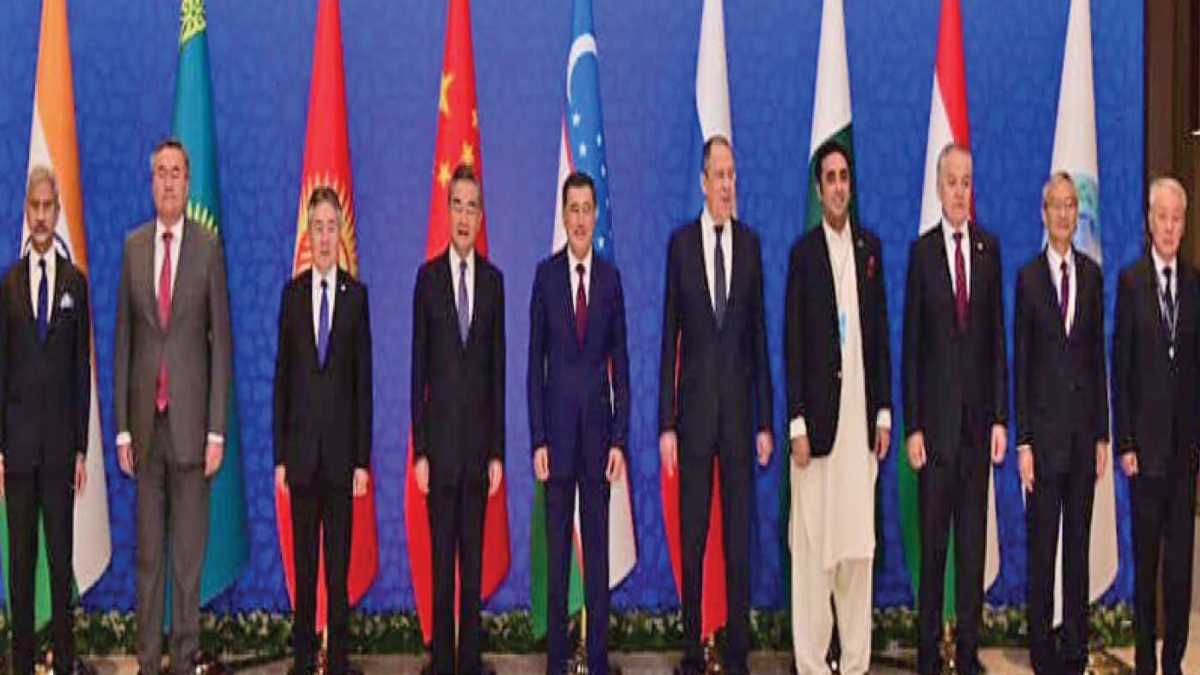


India is not shying away from clearly stating its priorities and strategic objectives in front of the whole world. Prime Minister Narendra Modi, and External affairs minister, S. Jaishankar have been clearly mentioning India’s zero tolerance towards any kind of terrorism on different international platforms, time and again. Apart from this major concern, they have also been putting forward India’s commitment in the areas of food and energy security, and collaborative economic progress.
This seems to be a new India that not only stands tall in the global world order, it executes autonomous and neutral foreign policy without any external influence, and works to achieve the positive global goals like working for climate change containment, developing resilient global supply chain, promoting holistic economic collaboration, boosting people-to-people connect, ensuring food and energy security, and fighting the global war against terror.
Jaishankar attended the Shanghai Cooperation Organisation (SCO) meeting of ministers with the foreign ministers of other member nations of the world’s largest regional organisation. Considering various political, economic and security related objectives, the SCO is a significant platform covering over 30% of global GDP, and 60% of area of Eurasia. The SCO meeting of the foreign ministers in Tashkent on 29 July, spelled the long-set objectives of strengthening collective efforts in resolving global and regional challenges, and expanding the forum. Keeping the present situation, where, on one hand, the Russia and Ukraine conflict does not seem to be ended soon, while, on the other, the world is facing various critical economic and political challenges in the shadow of Covid-19, the SCO meeting holds a strategic importance.
Being a dynamic member of other multilateral platforms, India participated and provided its noteworthy inputs to come up with the solutions for various global issues. India welcomed Iran as the new entrant from the next year, and also pushed development of the Chabahar port to crate a seamless channel for trade to Central Asia. Strategically, India has been working on the Chabahar port to contain China’s manoeuvrings in controlling the region by developing the China-Pakistan economic corridor. In present times, the entire world is facing the repercussions of Covid-19 and the Ukraine-Russia crisis, especially in context of disrupted supply chain. This has affected markets, economy and food security. Presently, collective efforts to boost economic progress seems to be the need of the hour. That’s what has been stressed upon by Jaishankar, accepted well by other member nations.
Jaishankar also stressed on promoting entrepreneurship and start-ups through SCO to endorse comprehensive economic growth. While working on its mission of “Atmanirbhar Bharat” and “Make in India”, this is what India has already applied to itself, and has also seen the results. Promoting start-ups not only helped India in solving economic challenges occurred due to Covid-19, it also promoted innovative and sustainable technologies, much needed in today’s times when climate change containment is another important global objective. Jaishankar also urged the member nations to collaborate in the domain of traditional medicines. This will not only help in strengthening the existing healthcare systems of the member nations, it will also encourage entrepreneurship, shill development and economic progress. Touching upon the Afghanistan crisis was another striking point of Jaishankar’s address. He not only mentioned how Afghanistan needs humanitarian assistance, he also requested the member nations to come together to help Afghanistan that has been facing severe political and economic crisis since last August when Taliban took over the control of its political regime.
It seems that entire world has forgotten what is going on in Afghanistan. Although India has been helping the nation with supplies of wheat, medicines, vaccines and other essential items on a regular basis, it should be taken as a collective task by other nations as well as a joint effort to help Afghanistan.
Last, but not the least, and for that matter most importantly, Jaishankar explicitly mentioned in front of Pakistan that India will not tolerate any kind of terrorism. This gives a significant diplomatic message to the nations that support and fund terrorism across the globe. India has been facing the brunt of terrorism for the past 70 years, and now is working promisingly to solve this global challenge with other like-minded nations. India is already working on developing effective counter-terrorism technologies and strategies with other nations like the US, bilaterally as well as on international platforms like Quad, multilaterally.
A positive development in context of the SCO is that India would get the presidency of SCO next year. India will also get the presidency of the powerful G20 forum at the end of this year. This provides India a great opportunity to help the member counties of both the organisations in connecting the dots and move towards common global objectives. Complex interdependence is one constant thing about today’s everchanging world, where bilateral and multilateral relations can be made based on common strategic objectives. India believes in collaboration and holding the key positions of two such huge platforms would certainly provide India a prospect to engage nations in positive relations.
The author is Professor, School of International Studies, JNU.